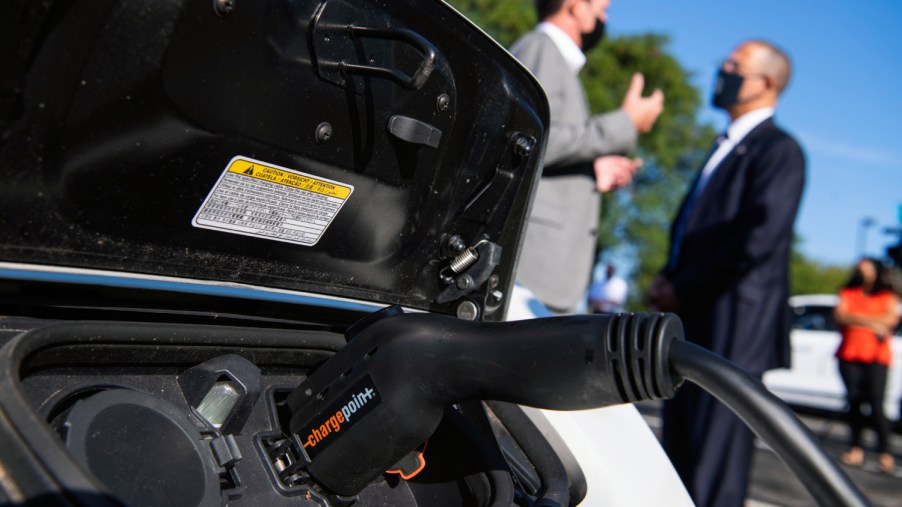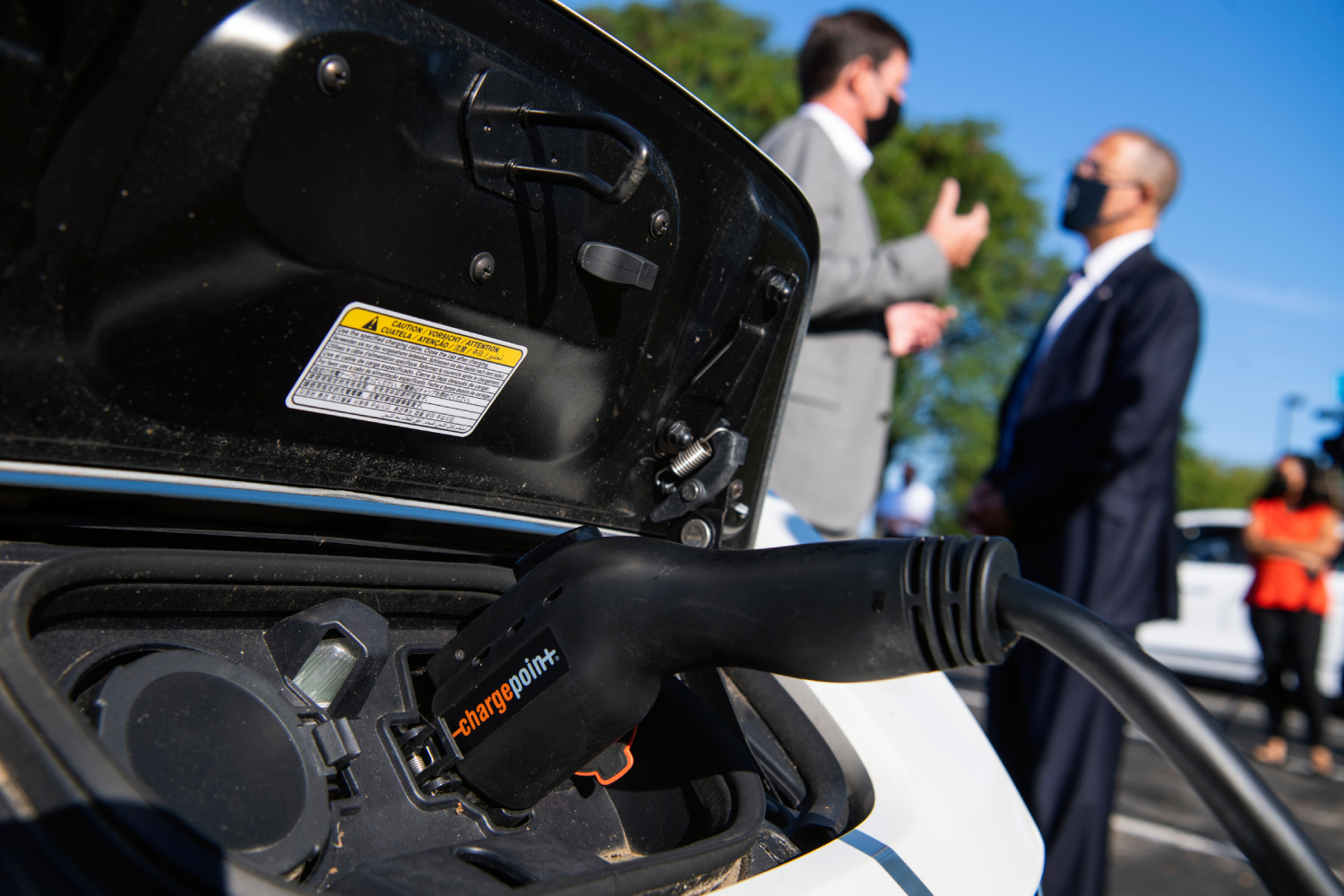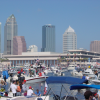
Electric Vehicle Chargers: Infrastructure Bill Designates $7.5B Toward EV Charging Network
The world of EV chargers is about to expand thanks to the new infrastructure bill that passed this week. The infrastructure bill will allow for 500,000 new electric vehicle chargers all over the U.S., vastly boosting the current network. What else does bill H.R.3684 – Infrastructure Investment and Jobs Act designate and how will this benefit the majority of Americans?
The new infrastructure bill brings $7.5 billion for electric vehicle chargers and other related items

According to The Wall Street Journal, the U.S. House of Representatives passed a $1.2 trillion infrastructure bill last week. Bill H.R.3684 offered $65 billion in upgrades for the electric grid and $7.5 billion for new electric vehicle charging stations. There has been a lot of pushback from potential EV buyers that the charging network isn’t strong enough to support the switch.
With $7.5 billion in funds, that means almost three times as many EV charger stations than the nation currently has. The U.S. Department of Energy says there are presently 122,000 charging ports across the continent. These 48,000 EV charging stations utilize both Level 2 and DC Fast-Chargers. At this time, drivers can find Level 2 chargers at popular places like shopping centers, hotels, and restaurants.
This was one of the promises President Joe Biden committed to during his pre-election days. With the significant shift toward electrification in full swing, having enough electric vehicle chargers for all the new EVs is important. With the significant shift toward electrification in full swing, having enough electric vehicle chargers for all the new EVs is important.
The language of bill H.R.3684 on the U.S. Congress website offers more information. The infrastructure should provide “non-proprietary charging connectors that meet applicable industry safety standards.” It also notes offering “secure, convenient, and equal access to the electric vehicle charging infrastructure that shall not be limited by membership to a particular payment provider.” Is that a shot at Tesla?
The growth of electric vehicle chargers and charging networks is imperitive
One of the major plans for the infrastructure bill will focus on highway charging. This will allow drivers to embark on longer trips without worrying about electric vehicle charging stations. “Proponents consider long-distance charging networks a critical missing ingredient for wider adoption of EVs,” the Wall Street Journal said.
The bill also addresses electrifying school buses and fixing aging infrastructure around the country. The bill won’t be enough to transform EV car charging, but it is a much-needed step in the right direction. The current situation comes down to a game of chicken. Will the average buyer switch to an EV before convenient chargers are available? Or will convenient chargers become available before the average buyer switches to an EV?
Anne Smart of ChargePoint Holdings says that this change is welcome. “States are prepared. They’ve got experience.” Smart also said that the charging industry has “people in all 50 states ready to install the stations and maintain the stations.” If that’s the case, 2022 should bring a quick increase in EV sales and EV chargers across the nation.
Tesla is also expanding the Supercharger network
Tesla is also working on expanding the brand’s charging network. The Tesla Supercharger network is present in major cities and along major highway routes but isn’t nearly enough for those in more rural areas. Right now, Tesla has the most expansive charging network across the nation, but it doesn’t work for all vehicles.
For now, electric vehicle chargers are slowly popping up in more areas around the country. With the government and Tesla committing to adding more chargers and charging stations, more drivers might be drawn to switch. This infrastructure bill did not include the increased tax credit for electric vehicles. That is part of a separate bill that has not been finalized or voted on yet.



